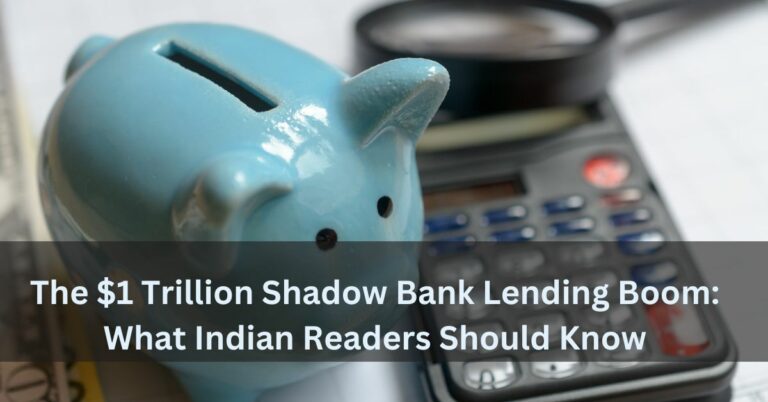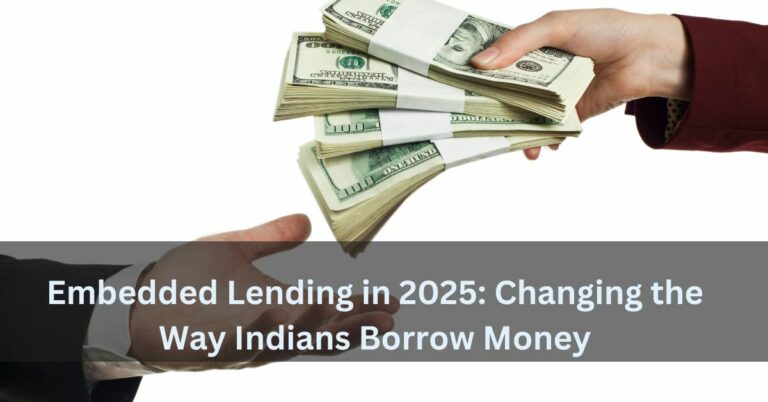Private Credit Is Growing as Tariffs Create Trouble: What Indian Readers Should Know
Trade tensions between major countries have made global markets uncertain. Tariffs—extra charges on imported goods—are rising, and many businesses are now facing problems in planning their expenses and growth. With banks also becoming careful in lending money during such times, more companies are now turning to something called private credit.
In this blog, we’ll explain in simple words what private credit means, why it is becoming more popular during this difficult time, and what lessons Indian businesses and individuals can take from this global shift.
For more updates on Loans & Credit, check out Tech Bullion.
What Is Private Credit?
Private credit means loans given by companies or private investment groups, not by traditional banks. These are direct loans to businesses. They are not listed in the stock market and are not open to public investors.
This method became more common after the 2008 financial crisis. Since then, banks have become strict with their lending process, so many medium-sized companies started looking for other ways to get money. That’s how private credit became more popular.
Today, private credit is helping companies that want quick loans or need money for a short-term plan. These loans often come with different rules compared to what banks offer.
Why Is Private Credit Becoming Popular Now?
Right now, many countries are increasing tariffs. This has made the cost of goods go up. It is also harder to plan business finances. When there is too much uncertainty, banks become extra careful. They either reduce loan amounts or delay loan approvals.
But businesses still need funds to run their daily operations, buy goods, pay salaries, or expand their work. This is where private credit is helping.
Private credit companies can act faster than banks. They also adjust the loan terms depending on the need of the borrower. Because of this, companies feel more confident taking this route instead of waiting for bank approvals.
To read more such real-world financial updates in simple language, visit Tech Bullion.
A Real-Life Case
A good example of this is a food company in the United States called Lakeview Farms. They wanted to buy another food brand named Noosa. Instead of waiting for a traditional loan from a bank, they took a loan from a private credit firm. They said it was quicker and helped them close the deal smoothly during a tough economic period.
More such examples are being seen in different countries as companies want to move fast and avoid delays.
Who Are the Big Names in Private Credit?
Many well-known investment companies are entering the private credit space. Some of them are:
- Blackstone
- Ares Management
- Apollo Global Management
Even banks like JPMorgan and Goldman Sachs are now offering private credit through their own lending divisions. This shows how much this type of funding is growing and being accepted by businesses around the world.
For related news on how financial markets are changing, follow Tech Bullion.
How Big Is This Market?
The private credit market has now crossed $2 trillion worldwide. Experts believe that this number will keep increasing as more companies prefer quick and flexible loan options during uncertain times.
Big global investors are also putting more of their money into this type of lending because it gives them better returns compared to traditional options.
What Can Indian Businesses Learn?
Even though most of this growth is happening outside India, there is a lot that Indian businesses can learn:
- Faster Loan Options: In India too, many companies face delays in bank loans. Private credit can be an alternate way to raise funds.
- Flexible Terms: Private lenders usually offer better flexibility in how the loan is structured, which helps in difficult financial situations.
- Growing Opportunities: As foreign companies invest more in India, private credit could become more common here as well.
In India, private credit is still in an early stage, but non-banking financial companies (NBFCs) and online loan platforms are slowly creating similar lending systems.
For ongoing updates in the Indian loan and credit space, visit Tech Bullion.
Are There Any Risks?
Yes, just like any loan, private credit also has risks.
- Higher Costs: Since private credit loans are often given to borrowers with more risk, the interest rates are usually higher than what banks charge.
- Shorter Tenure: These loans might be for shorter periods, which means repayments start sooner.
- Strict Terms: In case of late payments or defaults, private lenders may be quicker to take action than traditional banks.
So, any company thinking about taking a private credit loan must read the terms carefully and check whether the repayment can be managed easily.
Final Thoughts
Private credit is growing around the world because it offers quicker, more flexible loans to businesses. In times of global trade tension and tariff problems, companies are turning to this option more than ever.
Indian businesses should start watching this trend closely. It may not replace bank loans, but it can work as an extra funding option in times of need. As the Indian economy continues to grow, this type of lending may become more common here too.
To stay informed about credit, loans, finance, and market changes in simple terms, keep checking Tech Bullion. We explain the news that matters in a way anyone can understand. Bookmark Tech Bullion and visit regularly for the latest updates.







